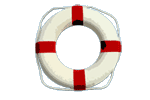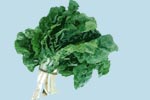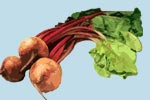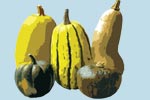 HEALTHY TIPS... LUCKY NUMNBER 7
HEALTHY TIPS... LUCKY NUMNBER 7
- Start Your Day With Breakfast
Breakfast fills your "empty tank" to get you going after a long night without food. Eating a good breakfast can help you do better in school. Easy to prepare breakfasts include: cold cereal with fruit and low-fat milk, whole-wheat toast with peanut butter, yogurt with fruit or whole-grain waffles.
- Get Moving!
It's easy to fit physical activities into your daily routine. Walk, bike or jog to see your friends. Take a 10 minute activity break every hour while you read, do homework or watch TV. Climb stairs instead of taking an escalator or elevator. Try to do these things for a total of 30 minutes every day.
- Snack Smart
Snacks are a great way to refuel. Choose snacks from different food groups - a glass of low-fat milk and a few graham crackers, an apple or celery sticks with peanut butter and raisins, or some dry cereal. If you eat smart at other meals, cookies, chips, and candy are okay for occasional snacking.
- Work up a sweat
Vigorous work-outs, when you're breathing hard and sweating, help your heart pump better, give you more energy and help you look and feel your best. Start with a warm-up that stretches your muscles. Include 20 minutes of aerobic activity, such as running, jogging or dancing. Follow-up with activities that help make you stronger such as push-ups or lifting weights. Then cool-down with more stretching and deep breathing.
- Eat more grains, fruits, and vegetables
These foods give you carbohydrates for energy, plus vitamins, minerals, and fibre. Besides, they taste good! Try breads such as whole-wheat, bagels, and pita. Spaghetti and oatmeal are also in the grain group.
- Join in physical activities at school
Whether you take a physical education class or do other physical activities at school, such as intramural sports, structured activities are a sure way to feel good, look good and stay physically fit.
- Foods aren't good or bad
A healthy eating style is like a puzzle with many parts. Each part, or food, is different. Some foods may have more fat, sugar or salt, while others may have more vitamins or fibre. There is a place for all these foods. What makes a diet good or bad is how foods fit together. Balancing your choices is important.
|
 |

Did you Know?
FUN FOOD FACTS
Carrots Really Can Help You See In The Dark!
Vitamin A is known to prevent "night blindness", and carrots are loaded with Vitamin A. So, why not load-up today!
The Word "Salary" Comes From "Salt!"
Salt, our oldest preservative, was extremely rare in the past. So rare, in fact, that it was often used as pay. Imagine...earning a couple of tablespoons of salt for a hard-days work. Today, salt is so common that restaurants give it away for free, and packaged food contains so much that it's far too easy to eat too much salt (salt is also known as "sodium").
The Average Person Eats Almost 1500 Pounds Of Food A Year!
On average, that can be thought of as 150 pounds of meat, 290 pounds of milk and cream, 35 pounds of eggs, 48 pounds of chicken, 68 pounds of bread, 125 pounds of potatoes, and 80 pounds of fruit. That should be enough to fill your stomach.

|
DID YOU KNOW...
- Did you know that strawberries and tomatoes are an excellent source of calcium?
Calcium is needed for the growth of a strong skeletal frame along with Vitamin D, protein and exercise. Excellent in helping to prevent osteoporosis.
- Did you know that soda pop has 9-12 teaspoons of sugar in one can? And is loaded with caffeine which puts a stress on your nervous system and actually does not quench your thirst at all.
Remember water is the beverage of choice for all ages and freshly squeezed fruit or vegetable juices in moderation.
- It Takes 3500 Calories To Make A Pound Of Fat!
So, as long as you're active, and burning of calories, calories shouldn't have too much of a chance to turn into fat.
- Did you know there are many different names used to describe SUGARS on packaged foods ingredients list...
Youth & Teens should be aware of in order to be a smart shopper; (maltose, sucrose, dextrose, etc).
- Did you know it takes 20 minutes after you start eating your meal for Satiety, or the feeling of fullness to kick in so eating slowly is best!
- Did you know that one of the key ingredients to maintaining a healthy body weight is portion control...
Make sure you monitor the size of your food portions - remember just because restaurants may serve a plate of food with large portions like steak or chicken wings or any type of entrée on the menu, it does not mean you should eat it all since that is one of the main causes to becoming overweight; portion control is important and the key to maintaining a healthy body weight along with exercise.

- Did you know that sports are exercise too...as long as your bodies moving consistently and your heart rate speeds up ...that is exercise and its important to get your body moving everyday!
- Did you know that eggs are nutrient dense and good for you!
Contrary to the bad publicity, eggs are an excellent source of protein and 11 essential nutrients, and are among the few food sources of vitamins D and K and choline. As with apples, think of an egg a dayclear up some confusion about eggs and cholesterol. Eggs have been avoided by many people because of their cholesterol. For most people, the problem is not eating cholesterol-containing foods, which have a small effect on blood cholesterol levels. It is eating foods that are high in fat, especially saturated fat that has a bigger effect on your blood cholesterol level. Studies suggest that you can eat up to one egg a day without raising your risk of heart disease or stroke. If you have high blood cholesterol, diabetes, or are at risk for heart disease, the most important thing to do is eat less fat, especially the saturated fats i.e.: fried foods.
- Did you know that water is needed for all of the complex reactions your body needs to perform on a daily basis.
Processes such as energy production, muscle building and fat burning require water. A lack of water would interrupt these processes. Water helps lubricate the joints. Water helps control the appetite. Sometimes hunger indicates a lack of water. Drinking water may take the craving away. Lastly, cold water increases metabolism!
- Did you know most energy bars are loaded with "bad" fats and are full of calories...
Living in a world of energy bars for quite some time, I am horrified when I see someone eat a candy bar during the day for a quick snack. Besides having at least half of the amount of fat, energy bars come fortified with 25 to 35 percent of the daily-recommended requirements of many vitamins and minerals. This is a benefit you would never get from a candy bar. It is important, however, to check ingredients carefully, as with other products. There are many different bars on the market, some are better
than others. Look for bars that contain at least 7 to 10 grams of protein, as well as carbohydrates.
- Did you know that protein diets can lead to heart disease, kidney stones and something called ketosis...
The best diet consists of a variety of alive, whole, good quality foods.
- When our acestors were hunters and gatherers, sweet and salty, savory foods meant high energy so our brain rewarded us for these foods but with civilization and technology we have high sugar and high fat foods available to us all the time unlike in nature where they are rare.
- Did you know that foods labeled as light does not necessarily mean low in FAT in can also refer to taste color and texture.
  
|
 |














|
 |